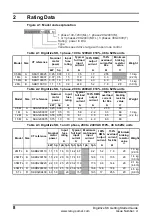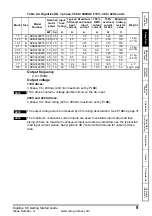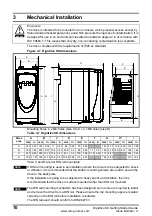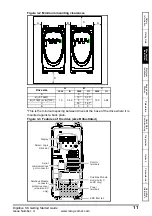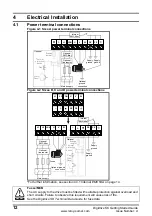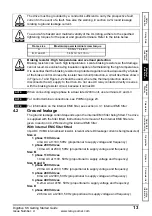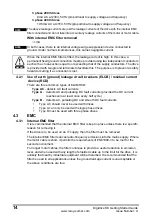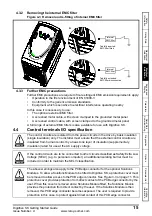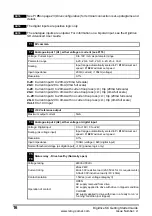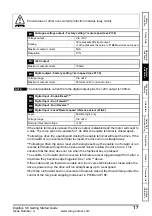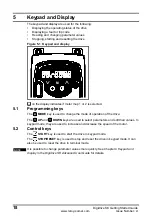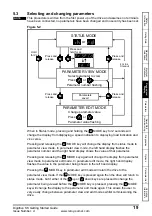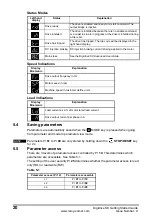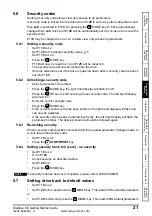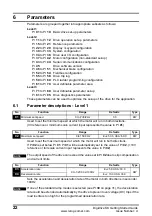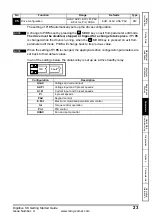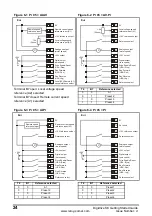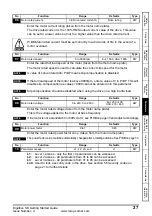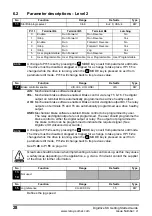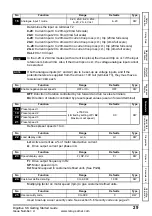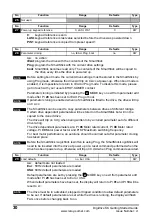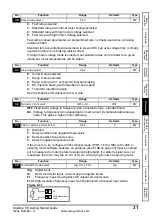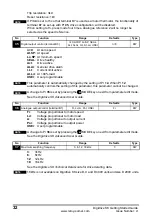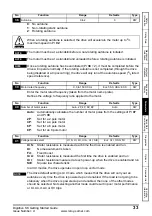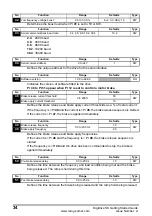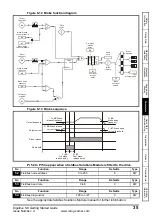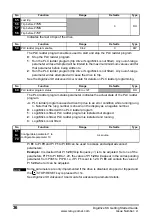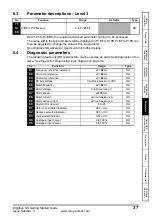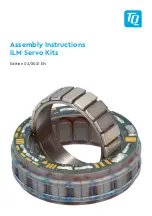
22
Digidrive SK Getting Started Guide
www.leroy-somer.com
Issue Number: d
6
Parameters
Parameters are grouped together into appropriate subsets as follows:
Level 1
Pr
01
to Pr
10
: Basic drive set-up parameters
Level 2
Pr
11
to Pr
12
: Drive operation set-up parameters
Pr
15
to Pr
21
: Reference parameters
Pr
22
to Pr
29
: Display / keypad configuration
Pr
30
to Pr
33
: System configuration
Pr
34
to Pr
36
: Drive user I/O configuration
Pr
37
to Pr
42
: Motor configuration (non-standard set-up)
Pr
43
to Pr
44
: Serial communications configuration
Pr
45
:
Drive software version
Pr
46
to Pr
51
: Mechanical brake configuration
Pr
52
to Pr
54
: Fieldbus configuration
Pr
55
to Pr
58
: Drive trip log
Pr
59
to Pr
60
: PLC ladder programming configuration
Pr
61
to Pr
70
: User definable parameter area
Level 3
Pr
71
to Pr
80
: User definable parameter set-up
Pr
81
to Pr
95
: Drive diagnostics parameters
These parameters can be used to optimise the set-up of the drive for the application.
6.1
Parameter descriptions - Level 1
Used to set the minimum speed at which the motor will run in both directions.
(0V reference or minimum scale current input represents the value in Pr
01
)
Used to set the maximum speed at which the motor will run in both directions.
If Pr
02
is set below Pr
01
, Pr
01
will be automatically set to the value of Pr
02
. (+10V
reference or full scale current input represents the value in Pr
02
)
Sets the acceleration and deceleration rate of the motor in both directions in seconds/
100Hz.
No
Function
Range
Defaults
Type
01
Minimum set speed
0 to Pr
02
Hz
0.0
RW
No
Function
Range
Defaults
Type
02
Maximum set speed
0 to 1500 Hz
Eur: 50.0, USA: 60.0
RW
The output speed of the drive can exceed the value set in Pr
02
due to slip compensation
and current limits.
NOTE
No
Function
Range
Defaults
Type
03
Acceleration rate
0 to 3200.0 s/100Hz
Eur: 5.0 USA: 33.0
RW
04
Deceleration rate
Eur: 10.0 USA: 33.0
If one of the standard ramp modes is selected (see Pr
on page 31), the deceleration
rate could be extended automatically by the drive to prevent over voltage (OV) trips if the
load inertia is too high for the programmed deceleration rate.
NOTE

